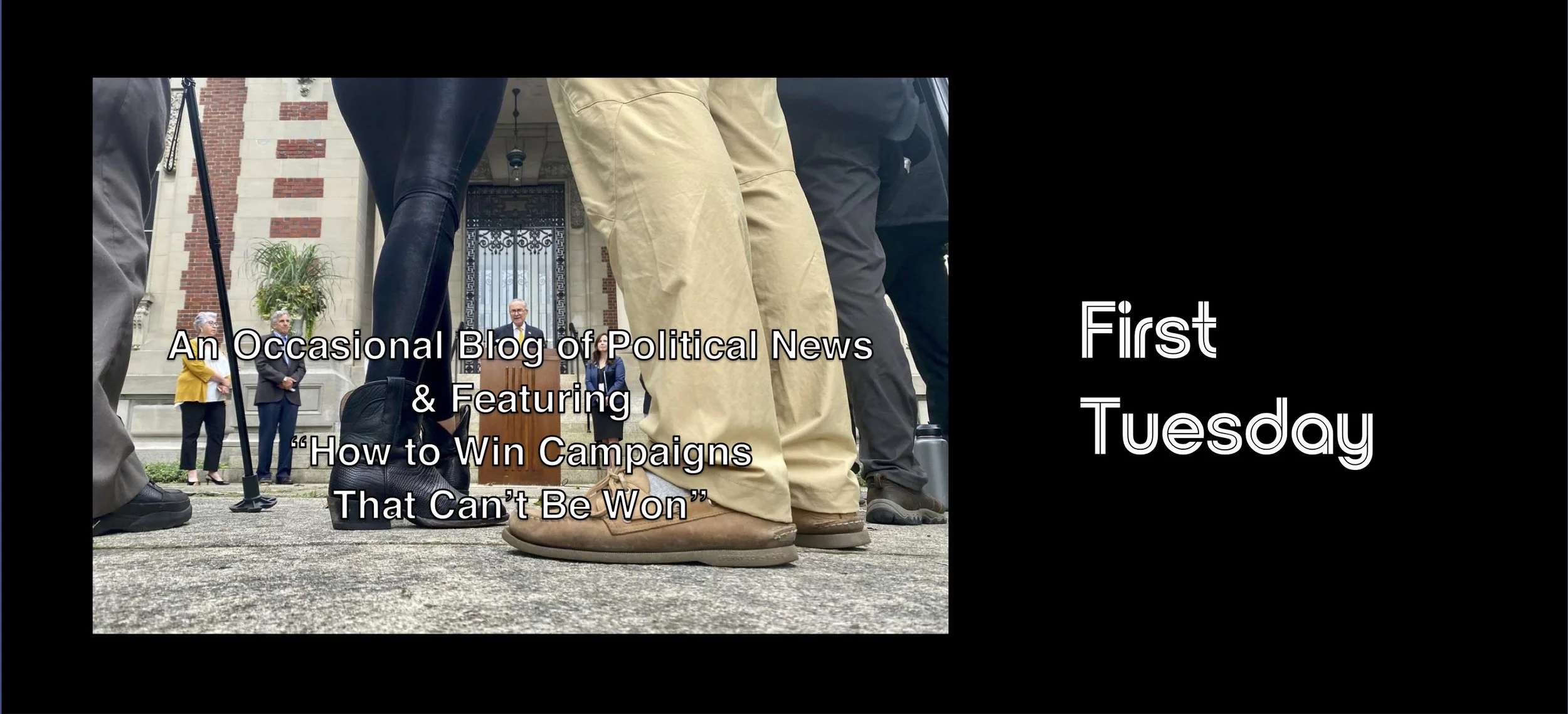Make Friends! It’s Rule #1 for Campaigning
/Photo by Cytonn Photography on Unsplash
A successful person is one who can lay a firm foundation
with the bricks others have thrown at them.
― David Brinkley
It’s a startling realization for new candidates to learn that they will make enemies of people just by getting up in the morning.
When word gets out that you’re going to be the Democratic candidate for Town Board, it’s a pretty sure bet that the Republican you’re going to run against will take you off their Christmas list.
And in many communities, it’s easier to make friends when you have COVID-19 than it is to publicly announce that you’re a Democrat and you want to effect change.
You can’t do it alone. So, it’s a good idea to make all the friends you can. And, to start counting them from day one.
That’s why, my rule #1 of campaigning is to make friends. It’s the foundation of any successful political campaign.
Here are some suggestions on where to start
1.) Chair of the County Democratic Party:
This is the person who represents the local Democratic Committee and rank-and-file Democrats. In major upstate metropolitan areas, it’s a not-too-well-paid position that is consumed mostly by fundraising … and getting candidates to run for local office. In rural counties, it’s a position often held by an over-worked volunteer. In any case, it’s likely that you’ll be welcomed* as good candidates are hard to come by. Making friends with the Chair first can avoid having them get egg on her face later when they hear from someone else that you’re running.
*(unless of course, you’re planning on running a primary against a current Democratic Officeholder in which case, you probably want to skip talking to the Chair and start contacting county committee members directly.
2.) Town or Local Democratic Committee Leaders:
The next level down from the County Chair are local Democratic leaders. In Cities, it might be the local Legislative District Leader. In a Town, it might be the town leader. Your local Dem Committee will often be the place to start. And, the Democratic Leader in your county has a lot of influence with other party types.
3.) Democratic Board of Elections Commissioner:
Your County Board of Elections is one of the top resources you can connect with. They can steer you on the State Political Calendar, get you on your way to filling your election committee with the State Board of Elections so you can legally raise money, and help you with lists of voters in your jurisdiction, along with their registration and their voting histories.
4.) Local Democratic Elected Officials:
Reach out to your local County Legislator (if they are a Democrat or WFP), your city council rep. Your state assemblymember or state senator, Mayor, or whoever is a Democrat and holding office. It’s important because they can be a conduit for raising money, and making introductions. And, if you don’t let them know they might get embarrassed when they learn it second or third hand.
5.) Local Political Reporter:
Getting to know this person is crucial as the campaign unfolds. News organizations are shrinking faster than a little kid’s tongue when their popsicle begins to melt. There may not be a full-time reporter who covers things political, but there’s someone. Making it easy for them to report on you will mean you have a better chance of actually getting some coverage.
6.) Local Working Families Party Coordinator:
In elections large and small, having the endorsement of the Working Families Party can make a difference. Not only does it give you a second line on the ballot, it also “brands” you as a progressive candidate. Their endorsement process can be demanding, but in local elections, but it can pay off in votes and volunteers. Note though … in some jurisdictions, labeling yourself as this much of a lefty can inhibit your vote-getting ability. Read your audience. You can always show your progressive colors AFTER you get elected!
SPEAKING OF ADVICE . . .
Here’s some: ASK don’t tell: A lot of people complain because candidates are so full of themselves. But quite frankly, if you don’t have a little self-esteem... maybe a LOT of self-esteem, you can’t bring yourself to knock on every door in your district every night for a whole year. You gotta believe in yourself.
Unfortunately, not everyone always has the same enthusiasm as you do.
That’s why it’s a good thing to ASK people their opinion ... labor leaders, progressive organizations, political operatives ... “I’m thinking of running ... but I wouldn’t make the decision without first consulting you.” goes a long way.
Then say, “Will you support me?”
Start today. Despite the myriad of ways of contacting people in this electronic age, getting them to respond is often harder than it looks. No one answers their phone if they don’t recognize the number. Emails are often ignored. And, many people aren’t used to checking the FB messenger.
Keep track of who you talk to, and thank them for meeting with you!

